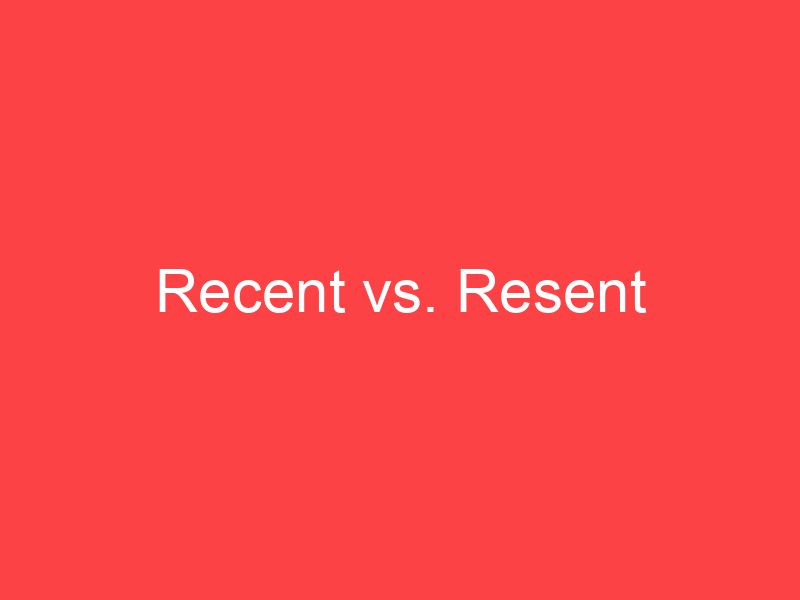-
Recent (adjective)
Having happened a short while ago.
-
Recent (adjective)
Up-to-date; not old-fashioned or dated.
-
Recent (adjective)
Having done something a short while ago that distinguishes them as what they are called.
“The cause has several hundred recent donors.”
“I met three recent graduates at the conference.”
-
Recent (adjective)
Particularly in geology, palaeontology, and astronomy: having occurred a relatively short time ago, but still potentially thousands or even millions of years ago.
-
Recent (adjective)
Of the Holocene, particularly pre-21st century.
-
Resent (verb)
To feel resentment over; to consider as an affront.
“The bride greatly resented being left at the church.”
-
Resent (verb)
To express displeasure or indignation at.
-
Resent (verb)
To be sensible of; to feel.
-
Resent (verb)
In a positive sense, to take well; to receive with satisfaction.
-
Resent (verb)
To recognize; to perceive, especially as if by smelling; — associated in meaning with sent, the older spelling of scent, to smell. See resent (intransitive verb).
-
Resent (verb)
To give forth an odor; to smell; to savor.
-
Resent (verb)
simple past tense and past participle of resend
“The package was resent, this time with the correct postage.”
-
Recent (adjective)
having happened, begun, or been done not long ago; belonging to a past period comparatively close to the present
“a recent edition of the newspaper”
“his recent visit to Britain”
-
Recent (adjective)
another term for Holocene
-
Recent (noun)
the Holocene epoch.
-
Resent (verb)
feel bitterness or indignation at (a circumstance, action, or person)
“she resented the fact that I had children”

